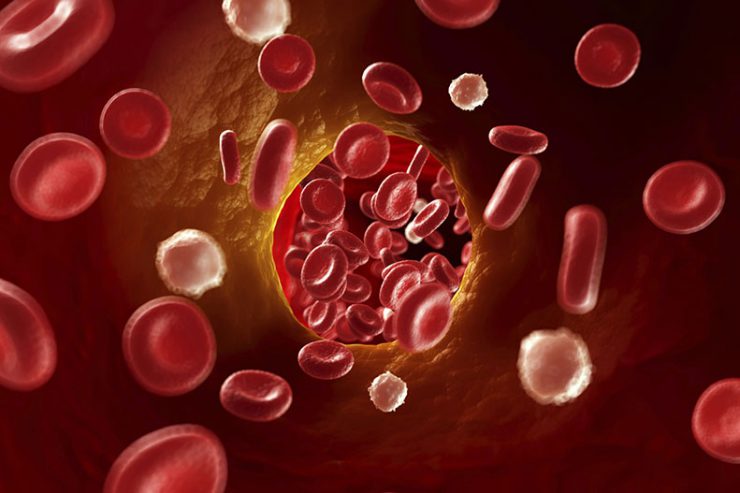This article was last updated on July 7, 2017
Cholesterol is a fat-like compound found in body tissue — and it plays a key role in your heart health. Your body needs some cholesterol to make hormones and help your body digest food. So, there are healthy and unhealthy ranges of cholesterol.
Unfortunately, the only way to know if your cholesterol is in a healthy range is to have it tested. By learning about cholesterol basics, you can stay on track with heart-healthy choices.
Never Miss a Beat!
Subscribe to Our HealthBeat Newsletter!
Thank you for subscribing!
You can now select the specific newsletters you'd like to receive.
You are already subscribed.
Subscribe to more newsletters in our email preference center.
Sorry, an error occurred. Please try again later.
Get Healthy Tips Sent to Your Phone!
What Is Cholesterol?
Cholesterol is a soft, waxy substance found in your blood and all of your body’s cells. Your liver makes it naturally, and it also comes from the foods you eat, including animal products like:
- Meat, fish, and poultry
- Egg yolks
- Whole milk dairy products
Foods from plants like fruits, vegetables, grains, nuts, and seeds have no cholesterol.
Your cholesterol level
Your cholesterol level is the amount of cholesterol in your blood. Your total cholesterol level is made up of:
- HDL, or “good” cholesterol. – A higher number is better, because HDL helps take away LDL, or “bad” cholesterol, from your blood.
- LDL, or “bad” cholesterol. – A lower number is better, because LDL is linked to the buildup of plaque in your blood vessels.
- Triglycerides, a type of fat. – A lower number is better, because triglycerides are also linked to the buildup of plaque in your blood vessels
Getting a Cholesterol Test
Starting at age 20, you should have a cholesterol test every four to six years. Your doctor may tell you to have yours checked more often if you have risk factors for heart disease.
Tests usually take place at a doctor’s office or other medical facility. Some communities offer free heart screenings at health fairs and other events.
Before your test, you will be asked not to eat or drink for several hours. During your test, a nurse or technician draws blood from your arm, and your blood is then sent to a lab for testing. Usually, you’ll get your results in about a week.
Cholesterol test results
Your results will fall into one of the following categories:
- 200 mg/dL or lower = normal
- 200 – 239 mg/dL = borderline high
- 240 mg/dL or higher = high
Having too much cholesterol in your blood raises your risk for heart disease, because cholesterol can build up inside your blood vessels in a form called plaque.
Over time, plaque build-up can make your blood vessels narrow, hard, or block them completely. If blood flow to your heart is blocked, it can cause a heart attack; if blood flow to your brain is blocked, it can cause a stroke.
High Cholesterol Treatment
Some people can lower cholesterol by changing their habits, including:
- Eating a heart-healthy diet of fresh fruits and vegetables, whole grains, lean meats, and low-fat or fat-free dairy products
- Getting regular exercise
- Losing weight, and maintaining a healthy weight
- Quitting smoking
Other people might need medicines to help lower cholesterol. Talk to your doctor about what is best for you.
To learn more, visit the UPMC Heart and Vascular Institute or contact us at 1-855-UPMC-HVI (876-2484).
About Heart and Vascular Institute
The UPMC Heart and Vascular Institute has long been a leader in cardiovascular care, with a rich history in clinical research and innovation. As one of the first heart transplant centers in the country and as the developer of one of the first heart-assist devices, UPMC has contributed to advancing the field of cardiovascular medicine. We strive to provide the most advanced, cutting-edge care for our patients, treating both common and complex conditions. We also offer services that seek to improve the health of our communities, including heart screenings, free clinics, and heart health education. Find an expert near you.
